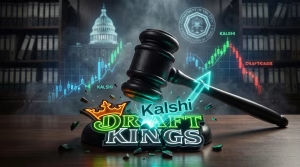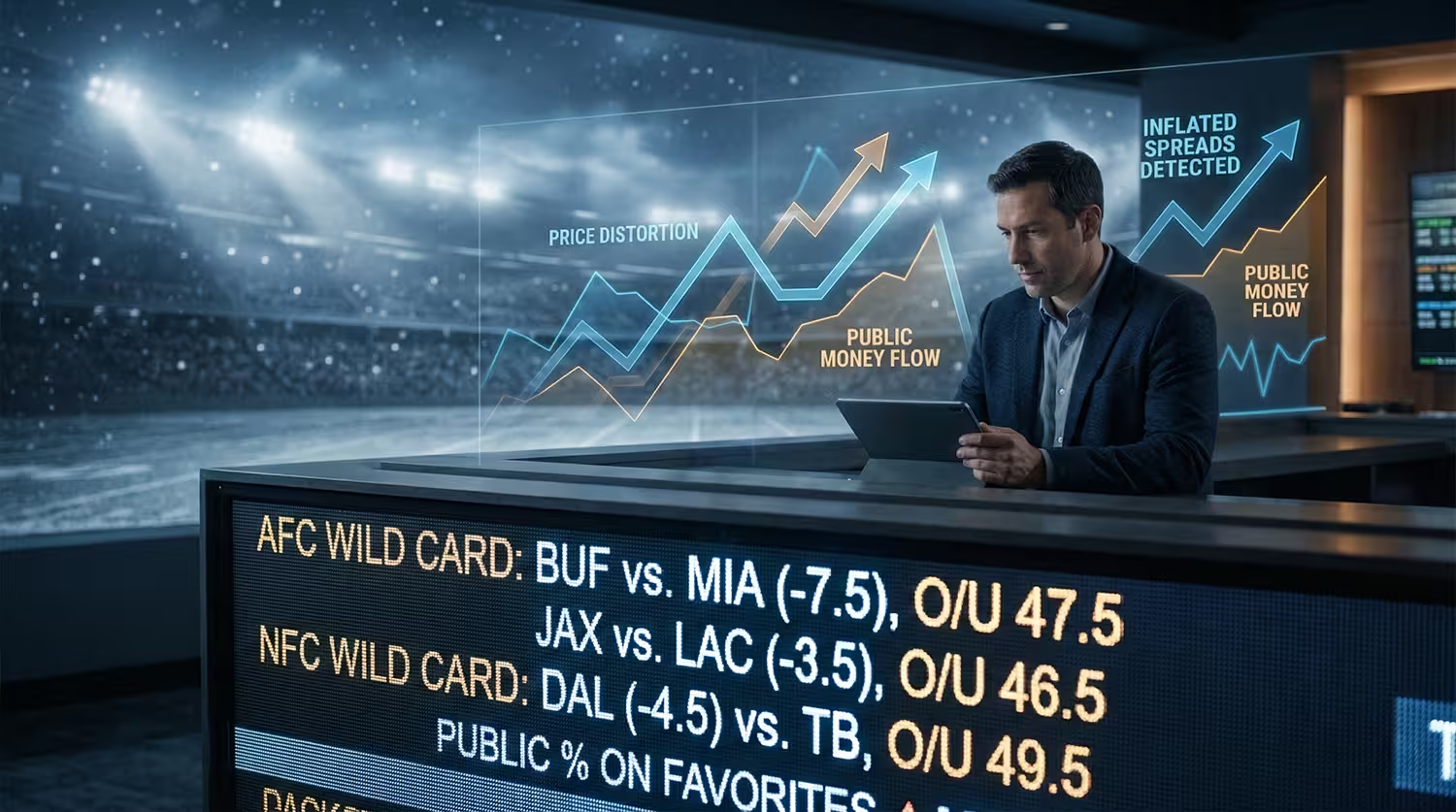The Impact of Gambling Advertisements on Youth and Society

How many gambling ads do you see a day? I did a little experiment and counted the number I encountered in a 24-hour period.
The number was 17, which might not seem like an outrageous number, but only three of them were from TV. The remaining 14 were all targeting me on social media platforms—Instagram, X (formerly known as Twitter), and TikTok. Not a big deal for me, who is of legal gambling age. But what about the teens who spend the most time on social media?
Chances are pretty good that they are scrolling through social media and are being hit with ads that make gambling look like just another harmless hobby. Like I said, the ads are everywhere—on TV, in apps, and even on streaming platforms like Hulu and Tubi—and are reaching young people who are probably not aware of the possible risks. In ads, gambling is shown as fun and easy, but the IRL consequences aren’t as clear cut.
As gambling ads flood the media, their impact on youth and society is pretty alarming. We aren’t clutching our pearls or anything, but the ads aren’t just promoting a product—they can mold attitudes and influence behaviors. This brings up some pretty important questions about the ethical responsibilities of both advertisers and the platforms that blast out these messages.
In our media-saturated world, where screens are an integral part of daily life, especially for the younger generations, the constant exposure to gambling advertisements is a real concern. And it’s not just that they are seeing the ads—it’s also how they can portray gambling as just another kind of entertainment. Why should we all care? Because it can affect them later in life! That’s why we are going to examine the impact of gambling advertisements on youth and society at large—the media has a responsibility to protect vulnerable minds.
The Rise of Gambling Advertisements
In the last five years, gambling ads have become a staple on almost every media platform. You see them on TV, plastered everywhere on social media, and at most pro sporting events. What was once relegated to a more quiet hobby, with the exception of Las Vegas, has leapfrogged into the mainstream due to the proliferation of online gambling sites, and with it comes a heightened concern about the effects on society, especially on the younger people who are being increasingly exposed to these ads.
Growth in Advertising
Gambling ads have literally exploded across all kinds of platforms. It doesn’t matter if you’re watching a football game on TV or doom-scrolling on social media; the ads are there, and they are abundant—all tempting you with lofty promises of big wins. The connection between sports and gambling has become even stronger, with major teams and events being sponsored by gambling companies. This kind of advertising is cleverly and strategically placed—during regular games, and then with the more exciting ones like playoff tournaments and the Super Bowl, so it stands to reason that gambling is almost an organic extension of watching sports. And if you are online, the ads get even more pervasive. They track you from site to site, learning your browsing habits, and perpetually reminding you of the “big money” you could be winning.
Marketing Tactics
To hook new customers, especially the younger generations, gambling companies use all kinds of cunning marketing tricks. They throw out offers like candy—free bets or big sign up bonuses, so it sounds like there’s nothing to lose. But the caveat? The deals are almost accompanied with super complicated terms that make it really hard to actually cash in without spending more money than you intended to. For younger people, who probably don’t fully get the long-term impact of their decisions, the ads can be enticing. The excitement of a possible win is dangled in front of them like a metaphorical carrot to a horse, and it’s hard to resist taking the bait.
Global Reach
The way gambling ads are handled differs around the world. Here in the U.S., since sports betting became legal in some states, the number of ads has skyrocketed. But this surge hasn’t gone unnoticed—some states are starting to push back, raising concerns about the sheer volume and potential harm of these ads. In Europe, the approach varies from country to country. The UK has put limits on when and where these ads can appear, while countries like Italy and Spain have taken a more severe stance, banning most gambling ads altogether. The regional differences show that it’s hard to regulate an industry that operates across borders and changes quickly to be in compliance with new rules and regulations.
The flood of gambling advertisements is not just about selling us something; it’s also about changing how we think about gambling itself. As these ads keep coming, their impact on society, especially on the younger generation, is harder to ignore. While there are efforts to reign in the industry, it remains to be seen whether they will be enough to curb the influence of these inescapable ads.
Impact on Youth
The influence of gambling advertisements on young people is an increasing concern, especially as they’ve been integrated into the digital world. From social media feeds to gaming apps, the exposure to gambling content is constant, which brings us to our next point—young minds have a harder time separating entertainment from risky behavior.
Exposure to Gambling Ads
Younger generations are the most connected yet,
and this has thrown open the door to increased exposure to gambling advertisements. Social media platforms, streaming services, and gaming apps are rife with ads that promote gambling as an exciting and simple way to make money. What makes the ads particularly insidious is their subtlety—a lot of them are designed to blend in with regular content. A teen who is watching a sports highlight on YouTube could be shown an ad from a gambling app about betting on a game, or they can see a social media influencer talk about a gambling site during a livestream. This kind of exposure is so commonplace that it normalizes gambling as part of everyday life.
The prevalence of these ads on platforms like Instagram, TikTok, and X means that young people will encounter gambling content several times a day, whether they’re actively looking for it or not.
The lines between regular content and gambling promotion are really blurry—it’s hard for young audiences to know when they are being targeted. In some cases, the ads are disguised as harmless entertainment, which only increases their effectiveness in reaching an impressionable audience.
Psychological Impact
The impact that these ads can have on younger minds is actually scary—adolescents and young adults are in a formative stage of brain development, and they are super susceptible to external influences. The glamorization of gambling in these ads can have a strong appeal, playing on the human desire for excitement, social acceptance, and fast rewards, and this makes young people the most vulnerable to developing harmful behaviors that are associated with gambling.
Studies have shown that the repeated exposure to gambling ads can lead to a positive attitude towards gambling among youth, which can, in turn, increase the likelihood of taking part in gambling activities. This is extremely concerning because gambling at a young age is strongly linked to the development of problem gambling behaviors later in life. The ads show gambling as a fun, low-risk activity, which downplays the very real dangers involved and makes it that much easier for young people to justify taking a chance.

Moreover, the psychological impact is not just about the act of gambling itself but also about the perception of gambling as a normal, common activity. When young people see their fav influencers or celebrities promoting gambling, it makes it even more attractive, so it comes off as a socially acceptable and even desirable behavior. This can cause a distorted understanding of the risks and rewards that are associated with gambling, further entrenching harmful attitudes.
Case Studies/Statistics
Recent studies and surveys give us compelling evidence of how gambling ads affect youth behavior and perceptions. A systematic review of studies on the impact of gambling advertising found that young people exposed to these ads were much more likely to develop positive attitudes towards gambling and were at a higher risk of engaging in gambling activities themselves. Studies also highlight the role of social media as a major conduit for these ads, with platforms like Instagram and X being especially successful at targeting younger audiences.
Another study revealed that about 10-14% of youth aged 12-17 are at risk of developing a gambling problem, with exposure to gambling ads being a big contributing factor. The research pointed out that the earlier young people are exposed to gambling, the higher the chances they have of developing problematic gambling behaviors when they’re older.
These findings underscore the urgent need for stricter regulations around gambling advertisements, especially on digital platforms where young people spend so much of their time.
Societal Impacts of Gambling Advertisements
Gambling advertisements have made their mark and the presence can be felt across multiple platforms—from TV screens to social media feeds. These ads don’t only promote their product; they mold societal attitudes towards gambling, embedding it into daily life and altering perceptions about its dangers and rewards. This evolution carries serious implications for both people and the communities we live in.
Normalization of Gambling
Gambling ads are the main contributor to the perception of gambling as a normal, typical thing to do. They present it as a fun, risk-free way to occupy yourself, completely glossing over the possible consequences. And for younger people this kind of portrayal obviously blurs the lines between harmless entertainment and behaviors that could turn into addiction. By constantly showing gambling in a positive light, the ads create an environment where gambling is not seen as a risky or stigmatized activity, but rather as just another option for passing the time or being social.
Economic and Social Costs
The impact of gambling goes way past single players—gambling addiction can (and does) cause financial strain, not only for the gambler but for their whole family. Those affected might be in a downward spiral of debt, and will sometimes resort to desperate measures to fund their gambling habit. The financial strain can result in the loss of homes, the breakup of families, and a lasting impact on children. The broader community also bears the brunt with increased demand for social services, mental health support, and financial aid programs.
Impact on Vulnerable Groups
Certain groups are more vulnerable than others to the influence of gambling ads. As an example, lower-income families could see gambling as a way out of financial difficulties. The promise of easy money can be incredibly seductive in a situation where their other options seem limited. However, whatever hope they had can turn into a trap, causing a cycle of gambling and increasing debt. Similarly, people who have existing mental health issues or a history of addiction can be more susceptible to the temptation of gambling ads, which are shown as a kind of escape from their struggles but, for the most part, only cause more problems.
Sure, gambling ads seem harmless at first glance, but have far-reaching consequences that ripple through society. They contribute to the normalization of gambling, impose scary economic and social costs, and disproportionately affect the most vulnerable groups.
Regulations Around Gambling Advertisements
Gambling ads have crept their way into every crevice of modern life, from TV to social media feeds—they are a constant presence in our lives. The ubiquity brings up important questions about how these ads are regulated and whether or not the current rules are enough to protect people, especially vulnerable groups like minors and those who are struggling with addiction.
Current Regulations
In the United States, the rules governing gambling advertisements change from state to state. Some states, such as Maine and North Dakota, have tougher laws that limit or outright ban certain kinds of gambling ads, especially those that are thought to be targeting minors or promoting activities that are illegal within the state. In Maine, gambling advertisements are heavily restricted, with promotions from out-of-state operators still being considered illegal if they are deemed to advance intentionally or profit from gambling within the state’s borders. This makes it a challenging environment for advertisers who have to carefully tailor their campaigns to comply with the differing state laws.
Meanwhile, in states where gambling is legal, there are more permissive advertising rules, provided that companies follow guidelines meant to prevent ads from targeting underage audiences or making any misleading claims. But even in these states, the regulations are not uniform, so it’s a complicated area for gambling companies to negotiate. They have to know each state’s specific requirements and verify that their advertising strategies do not violate local laws. This includes making sure that disclaimers like “Void where prohibited” are prominently displayed where the promotions are not applicable so there is zero confusion for those who see the ad.

Internationally, the approach to regulating gambling ads differs as well. The United Kingdom implemented a “whistle-to-whistle” ban that restricts gambling ads during live sports events until after 9 PM, a rule designed to limit exposure to children. Italy has taken an even tougher stance, enacting an almost-total blackout on all forms of gambling advertising. The measures show there is a definite uptick in concern over the social impact of gambling and a desire to protect vulnerable populations from the potentially harmful effects of such ads.
Challenges with Existing Regulations
Despite the presence of these regulations, enforcing them is no small feat, as the digital age has ushered in new forms of advertising that traditional regulatory frameworks were not designed to handle. Social media platforms and online streaming services have become the main channels for gambling ads, usually with sophisticated targeting capabilities that can reach young and impressionable audiences. This means there is more concern that the existing regulations are not doing enough to curb the influence of gambling ads on vulnerable groups.
One of the biggest hurdles in regulating gambling ads is the global nature of the internet—a gambling company that is based in one country can easily broadcast its ads to users in another, bypassing local laws that might be stricter. This makes it difficult for regulators to enforce their rules effectively and leaves wiggle room for companies to exploit any loopholes. Even in countries that have the strongest advertising laws, gambling companies can use influencers or content marketing to promote their services in ways that are almost impossible to regulate.
Indirect forms of advertising are not always covered by existing laws, making them a gray area that companies can exploit—a loophole.
And while some countries have made progress in regulating gambling ads, others are still playing catch up. In the United States, there is no federal oversight specifically governing gambling advertisements, leaving regulation to individual states. This has put in place a fragmented system where the rules can change dramatically from one state to another. As a result of this, gambling companies have to tiptoe through a regulatory minefield, which translates into inconsistent enforcement and varying degrees of protection for consumers.
Calls for Stricter Control
As awareness of the potential harms associated with gambling ads increases, the pressure on governments and regulatory bodies to tighten the rules has ramped up. Advocacy groups, public health officials, and concerned citizens are calling for stricter controls to protect vulnerable groups, especially young people who are at a higher risk of being influenced by these ads. There is a bigger consensus that the current regulations don’t go far enough and that more needs to be done to limit the exposure of these groups to gambling advertisements.
In the United States, some states are starting to take action by proposing stricter rules around gambling ads. They include banning the use of celebrities in gambling promotions, requiring more prominent disclosures about the risks of gambling, and implementing stronger restrictions on ads that appear in media that is consumed by minors. However, the efforts are still in their early stages, and there is a lot of debate about how best to balance the interests of the gambling industry with the need to protect consumers.
The American Gaming Association (AGA) has also recognized the need for responsible advertising practices and has introduced a Responsible Marketing Code for Sports Wagering. The code sets standards for the industry, including guidelines on advertising responsibly and protecting vulnerable populations. But critics argue that self-regulation is not nearly enough and that government intervention is necessary to guarantee that these standards are upheld across the board.
As the debate rages on, one thing is apparent—the regulation of gambling advertisements is an issue that will take ongoing attention. The fast growth of the gambling industry, in combination with the changing nature of digital advertising, means that regulators will have to remain vigilant and adapt their strategies to keep up with the changes. The stakes are high, as the social and economic costs of gambling addiction can be devastating, not just for individuals but for entire communities.
Responsible Advertising and Industry Practices
The gambling industry, with its extensive reach and influence, faces increasing scrutiny over how it markets its services. As concerns expand about the potential harm these ads can cause, particularly to vulnerable groups, more companies are adopting advertising practices that are not only responsible but also socially conscious in response to both regulatory pressure and the industry’s recognition of the ethical responsibilities it has.
Ethical Advertising
The majority of gambling entities recognize that their advertising practices need to show a strong commitment to social responsibility. This means taking proactive steps to make sure that their ads are not just legal but also ethical. The Betting and Gaming Council (BGC) in the UK has updated its advertising code to introduce tougher measures on how and where gambling ads can be shown.
- Their rules now require social media ads to be targeted only at users who are verified to be 18 or older unless the platform can guarantee that the ads will not reach younger audiences.
- And all ads that appear on search engines have to state that they are for adults only clearly, and they must include frequent messages that promote safer gambling.
Some companies are also voluntarily dedicating a portion of their advertising budget to promoting responsible gambling messages. During the COVID-19 pandemic, several operators in the UK committed to using at least 20% of their TV and radio ad slots to promote safer gambling. This was a move that shows a growing awareness within the industry that their messaging has to be balanced, so that the possible risks of gambling are communicated just as plainly as the potential rewards.
Corporate Responsibility
On the corporate responsibility side, companies are increasingly expected to take proactive steps to mitigate the potential negative impacts of gambling, especially as their influence continues to expand. Brands like MGM Resorts and Las Vegas Sands are at the head of this movement, and they are implementing programs specifically designed to promote responsible gambling among their customers.
MGM Resorts has launched the “GameSense” program, which provides players with tools and info to help users gamble in a way that is safer and more controlled. The program stresses the importance of setting limits, understanding the odds, and knowing when to stop, which are all a must for stopping gambling before it turns into a problem. Similarly, Las Vegas Sands has developed the “Project Protect” initiative, which focuses on creating a safe and responsible environment for all of its customers. The initiative includes comprehensive training for employees on how to recognize and assist customers who could be at risk of developing gambling problems.
FanDuel is another company that has taken notable movement in promoting responsible gambling. Their “Play Well” initiative is integrated into their platform, and gives users features like wager limits, self-exclusion options, and educational content to help them make informed decisions about their gambling habits. By embedding these tools directly into the user experience, FanDuel is making it easier for users to manage their gambling responsibly.
Below are the brands that have responsible gaming programs and features:
DraftKings has implemented several responsible gambling initiatives, including tools like “My Stat Sheet,” which helps players monitor their gambling habits. The company also collaborates with Kindbridge Behavioral Health to provide clinical support for players facing gambling problems.
Through its “GameSense” program, MGM Resorts offers resources and tools to help players gamble responsibly. The program focuses on education and provides support to ensure that gambling remains a form of entertainment rather than a source of harm.
FanDuel’s “Play Well” initiative includes features such as wager limits, self-exclusion options, and educational content designed to help users manage their gambling activities responsibly.
The “Project Protect” initiative by Las Vegas Sands aims to create a safe gambling environment. This program includes employee training on identifying and assisting at-risk customers and emphasizes responsible gaming across all customer interactions.
Betr, co-founded by influencer and boxer Jake Paul (who is set to fight Mike Tyson), has integrated responsible gambling tools into its onboarding process. The platform automatically sets monthly deposit limits for users aged 21-25 and prohibits the use of credit cards, helping to safeguard younger and potentially more vulnerable users.
Entain, the parent company of brands like Ladbrokes and Coral, is known for its “Changing for the Bettor” campaign, which focuses on using technology to detect risky behaviors and promote responsible gambling.
Owner of popular brands like Paddy Power and Betfair, Flutter has been a leader in responsible gambling, implementing various tools such as deposit limits and real-time behavioral monitoring.
The owner of Unibet and 32Red, Kindred, has committed to achieving zero revenue from harmful gambling by 2023. The company uses data-driven approaches to identify at-risk players and provide support before problems escalate.
Betting and Gaming Council (UK initiatives):
- Socially Responsible Advertising Code: The Betting and Gaming Council (BGC) has implemented an updated Industry Code for Socially Responsible Advertising. This code mandates that all gambling ads on social media must target individuals aged 25 and over unless the platform can guarantee the audience is at least 18.
- Whistle-to-Whistle Ban: The BGC introduced a “whistle-to-whistle” ban, preventing gambling ads from being shown during live sports broadcasts before 9 PM. This initiative resulted in a 97% reduction in the number of gambling ads seen by children during sports events.
- Increased Responsible Gambling Messaging: The BGC members committed to ensuring that at least 20% of their TV and radio ads are dedicated to promoting responsible gambling, especially in response to concerns raised during the COVID-19 lockdown.
- Crackdown on Under-18 Viewing: The BGC has also focused on preventing under-18s from viewing gambling ads online. This includes requirements that betting ads on search engines must clearly indicate they are for over-18s and must include responsible gambling messages.
Caesars Entertainment:
- Responsible Gaming Program: Caesars Entertainment has a comprehensive responsible gaming program that includes employee training to identify and assist players who may be at risk of gambling problems.
- Self-Exclusion Programs: The company has self-exclusion programs so players can voluntarily exclude themselves from gambling at Caesars properties for a set period of time.
- Awareness and Education: Caesars actively promotes responsible gaming through awareness campaigns and educational materials distributed across their properties. They also provide resources and support for individuals who may need help managing their gambling behavior.
- Collaboration with Problem Gambling Organizations: Caesars partners with organizations dedicated to addressing problem gambling, such as the National Council on Problem Gambling (NCPG), to provide better support and resources to those affected.
These companies are setting a good example by integrating responsible gambling practices into their operations, showing that it is possible to balance business goals with the well-being of their customers. By continuing to push for higher standards, these brands are helping to build a more responsible future for the gambling industry.
Potential Solutions
We acknowledge that the efforts above are commendable, but there is still a lot of work to be done to protect those who are most vulnerable to the dangers associated with gambling. Several potential solutions have been proposed to improve the regulation of gambling ads and promote more ethical advertising practices, including the following:
- Limiting Ad Placement: One of the obvious and straightforward ways to lessen the impact of gambling ads is to limit where and when they can be shown. Restricting these ads from appearing during live sports broadcasts, particularly when children are likely to be watching, could help protect younger audiences from being exposed to gambling promotions.
- Stricter Age Verification: Implementing more rigorous age verification processes is another solid move. This could mean requiring platforms like YouTube to verify the age of users before showing them any gambling-related content. By doing so, companies can make sure that their ads are reaching only those who are legally allowed to gamble.
- Alternative Content: Another approach is to offer alternative content that promotes healthier behaviors. Instead of showing gambling ads, companies could be encouraged or required to run ads that focus on the possible dangers that are associated with gambling or that promote other activities that contribute to a balanced lifestyle. This would help shift the focus from gambling to more positive and constructive pursuits.
The Role of Parents and Educators
Because gambling is more accessible than ever due to online platforms and apps, parents and educators are in the position of helping young people understand and avoid the associated risks. Their involvement is important in giving the guidance and education that is needed to equip kids with the knowledge of how they can face the dangers in a safe and smart way!
Parental Guidance
Parents are the first line of defense when it comes to protecting their kids from the possible dangers of gambling, and they can do it early on by having conversations about gambling and making it an ongoing part of their relationship. These talks can be a part of regular daily life, like around the dinner table, while watching sports, when a gambling ad comes on during a TV show, or during any family activities that involve decision-making and understanding risks. The goal is to make these kinds of talks feel organic and approachable—not serious and like a lecture.
Parents should concentrate on a dialogue about how gambling can start out as a harmless thing but can go downhill in an instant and cause serious consequences. It’s important to be honest about the reality of gambling—stress that it is never a reliable way to make money and can cause financial problems, stress, and addiction. When you talk about the dangers openly, parents can help their children develop a realistic understanding of gambling and its potential hazards.

In addition to talking about the dangers, parents should help their children understand the nature of gambling advertisements. Almost every ad is shot and shown to make gambling look easy and fun, but parents can teach their children to critically assess these messages and recognize them for what they are and the manipulation going on behind them. Critical thinking is a skill that’s invaluable for helping younger generations to resist the lure—or at least know what they really mean—of gambling ads.
Leading by example is another solid way for parents to influence their children’s attitudes toward gambling. When parents show responsible behavior—like setting limits on their gambling activities, not gambling when they’re upset, and seeing it as what it is, which is a form of entertainment and not a money-making strategy—they give their kids a model to follow. Children are more likely to absorb and adopt these attitudes if they see them practiced by the adults they trust and look up to!
Schools and Awareness Campaigns
Educators would have a really unique opportunity to help form young people’s understanding of gambling. They could do this by integrating gambling education into school curricula, and teachers can give students the knowledge and skills they need to make wise choices. This kind of education can take on many forms, from classroom discussions to interactive workshops and presentations. Of course, it has to be approved by the school, which is another kettle of fish entirely.
In a perfect world, we’d have programs that engage students in learning about gambling through interactive methods, like activities that help students understand the odds of winning and losing, the techniques that are used in gambling ads, and the potential consequences of gambling. If they make the learning process engaging and relatable, students would most likely take in the info and apply it in their own lives later on.
Schools could also collaborate with external organizations that specialize in gambling education and prevention. Organizations like YGAM (Young Gamers and Gamblers Education Trust) and GambleAware have great resources and training for teachers so they are able to deliver accurate and impactful lessons on gambling. These kinds of collabs would give students a better perspective and understanding of the dangers that are associated with gambling.
Awareness campaigns within schools are another solid way to teach students about the possible risks of gambling. Campaigns like Safer Gambling Week have a lot of resources that schools could use to raise awareness and promote healthy attitudes toward gambling. The campaigns typically include films, digital activities, and other materials that are designed to engage students and encourage them to think critically about gambling.
Educators also do their part in supporting students who may be at risk of developing gambling problems. By being aware of the signs of problem gambling—like changes in behavior, unexplained absences, or financial issues—teachers can intervene early and offer the necessary support. This could look like referring the student to a counselor or offering them info about where to get help. Early intervention can make all the difference in preventing small issues from escalating into serious problems.
How We Move Forward
Gambling ads have gone mainstream—they are now an everyday (or every hour) occurrence, and the impact they have on young people and the society can no longer be ignored. It’s obvious that this has to be confronted, and not just by regulators; but everyone who cares about the future!
- Gambling as “Normal”: When gambling ads are everywhere—from sports broadcasts to social media feeds—they start to feel like just another part of daily life. This constant exposure can make gambling seem like a regular, risk-free activity, especially to young people who may not fully understand the potential consequences. It’s easy for them to start thinking of gambling as no different from other forms of entertainment, like video games or movies, which can be a dangerous misconception.
- The Ripple Effect: The consequences of gambling go far beyond the individual who places the bet. When someone gets caught up in gambling, it can lead to financial struggles, strained relationships, and even mental health issues. Families often bear the brunt of these impacts, dealing with the fallout from lost savings, mounting debts, and the emotional toll of watching a loved one spiral. Communities, too, feel the strain as the social safety net gets stretched thinner by the increasing need for support services and intervention programs.
- Who’s Most at Risk: Not everyone is equally affected by gambling ads. Young people, particularly those from lower-income backgrounds or with existing mental health challenges, are more vulnerable to the seductive appeal of gambling as an easy escape from their problems. These ads often target these groups more aggressively, presenting gambling as a quick fix for financial woes or a way to gain social status without highlighting the very real risks involved.
- What Parents and Educators Can Do: Parents and educators have a unique opportunity to step in and make a difference. By having regular, honest conversations about the realities of gambling and the tricks used by advertisers, they can help young people build a strong foundation of critical thinking and self-awareness. It’s about more than just warning them of the dangers—it’s about equipping them with the knowledge and skills to navigate a world where gambling is increasingly normalized. Encouraging kids to question what they see in ads, understand the odds, and recognize the difference between entertainment and exploitation can go a long way in protecting them from making decisions they might later regret.
We can either sit on the sidelines doing nothing or choose to get in the game. If you’re a parent, teacher, or merely a concerned bystander, you can push for stricter rules on when and where gambling ads can pop up, especially in the places where kids spend time. You can also back the efforts to educate young people about the dangers and be aware of the influence that the ads have on those around you to shield the next generation and open their eyes to the very real hazards behind the splashy promises in gambling advertisements.
Final Thoughts
We find ourselves at a crossroads. As gambling ads become more ingrained in our everyday experiences, we must decide how we want to shape the future for those who come after us. The choices we make today—whether we advocate for change, educate the young, or stay vigilant—will determine whether we protect our society from the possible dangers of gambling or just let those risks go unchecked.

Alyssa contributes sportsbook/online casino reviews, but she also stays on top of any industry news, precisely that of the sports betting market. She’s been an avid sports bettor for many years and has experienced success in growing her bankroll by striking when the iron was hot. In particular, she loves betting on football and basketball at the professional and college levels.








